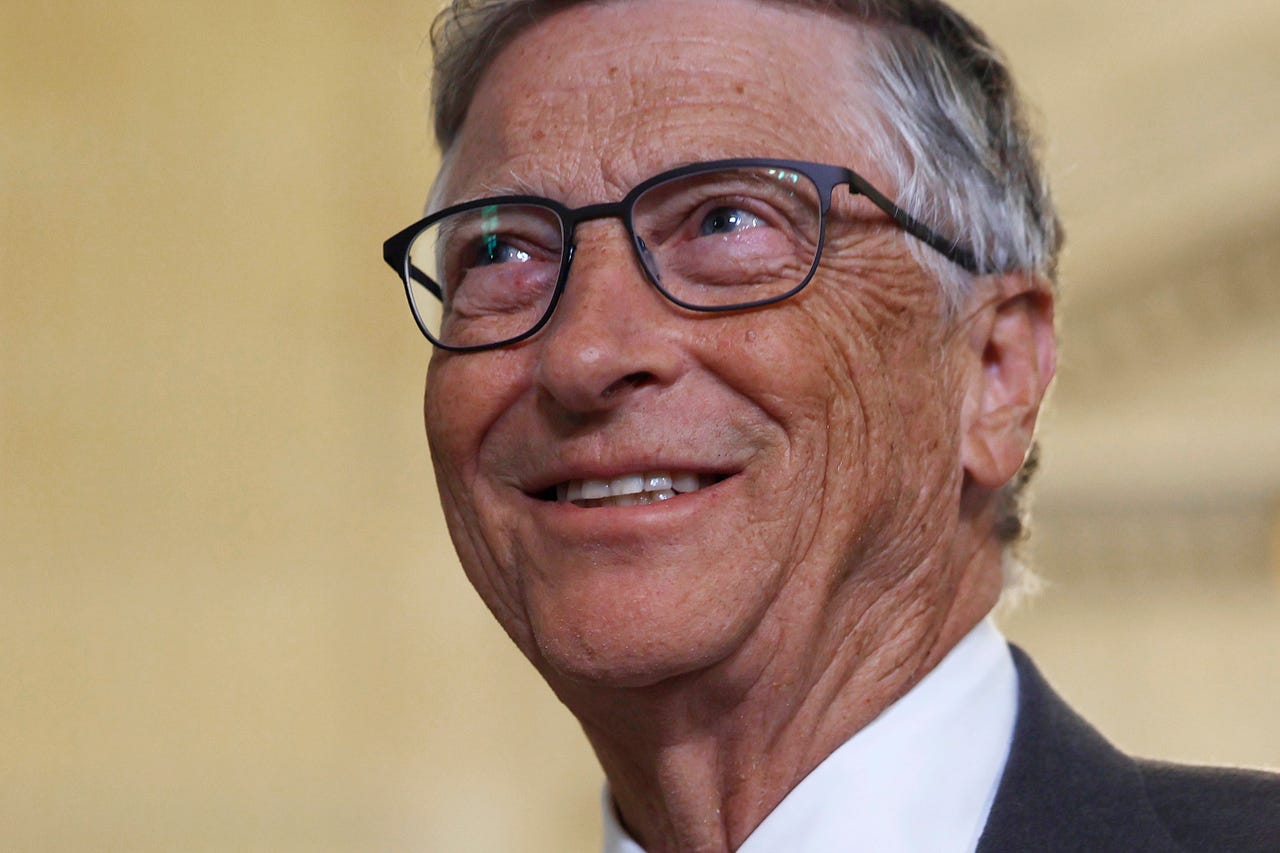
































The use of artificial intelligence by the general population in developed countries such as the US to a "significant" degree will start to take place in the next 18 to 24 months, according to Microsoft co-founder and philanthropist Bill Gates in his year-end letter released last week.
The impact on things such as productivity and innovation could be unprecedented, says Gates.
"Artificial intelligence is about to accelerate the rate of new discoveries at a pace we've never seen before," wrote Gates on his blog.
Also: You can now run Microsoft's AI-powered Copilot as a free Android app
Gates, who serves on the Gates Foundation that he formed with Melinda French Gates, focused his remarks in the letter on the uses of AI in the developing world.
"A key priority of the Gates Foundation in AI is ensuring these tools also address health issues that disproportionately affect the world's poorest, like AIDS, TB, and malaria," wrote Gates.
Gates cites multiple applications of AI in different countries while noting that the practical implementation will come not this year but in the latter years of this decade.
Also: These 5 major tech advances of 2023 were the biggest game-changers
"The work that will be done over the next year is setting the stage for a massive technology boom later this decade" through AI, wrote Gates.
Examples of AI being developed for uses in education and fighting disease cited by Gates in his letter include:
Gates places particular emphasis on the AI applications that are being built in the respective countries that will presumably be better attuned to the realities of those countries. For example, voice input in the Pakistan health records app matches the common practice of people sending voice messages on mobile devices rather than typing out messages.
Also: 's product of the year: Meta Quest 3 is the quiet shocker of 2023
"We can learn a lot from global health about how to make AI more equitable. The main lesson is that the product must be tailored to the people who will use it," wrote Gates.
Gates predicts the developing world will not be that far behind the developed world in seeing adoption of AI:
If I had to make a prediction, in high-income countries like the United States, I would guess that we are 18-24 months away from significant levels of AI use by the general population. In African countries, I expect to see a comparable level of use in three years or so. That's still a gap, but it's much shorter than the lag times we've seen with other innovations.
 Горячие метки:
3. Инновации
Горячие метки:
3. Инновации